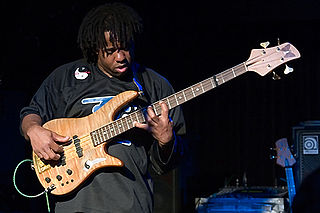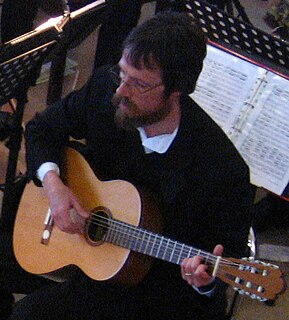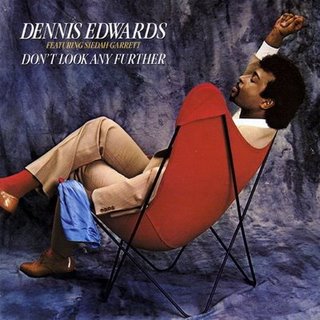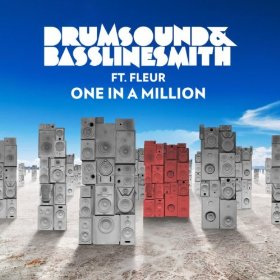| Look up bassline in Wiktionary, the free dictionary. |
Bassline is the music term for the low-pitched instrumental part or line played by a rhythm section instrument.

A bassline is the term used in many styles of music, such as jazz, blues, funk, dub and electronic, traditional music, or classical music for the low-pitched instrumental part or line played by a rhythm section instrument such as the electric bass, double bass, cello, tuba or keyboard. In unaccompanied solo performance, basslines may simply be played in the lower register of any instrument such as guitar or piano while melody and/or further accompaniment is provided in the middle or upper register. In solo music for piano and pipe organ, these instruments have an excellent lower register that can be used to play a deep bassline. On organs, the bass line is typically played using the pedal keyboard and massive 16' and 32' bass pipes.
Bassline may also refer to:
- Bassline (music genre), a type of music related to UK garage
- "Bassline" (Chris Brown song), 2012
- "Bassline" (Reverend and The Makers song)
- The Bassline (club), a music venue in Johannesburg, South Africa
Bassline is a type of music related to UK garage that originated in Sheffield in the early 2000s. Stylistically it comprises a four-to-the-floor rhythm normally at around 135–142 beats per minute, a strong emphasis on bass, and a pop music aesthetic similar to that of its precursor 2-step garage.
"Bassline" is a song by American recording artist Chris Brown, taken from his fifth studio album Fortune (2012). It was written by Andrea Simms, Andrew "Pop" Wansel, Brown, David Johnson, Robert Calloway, Ronald "Flippa" Colson and Warren "Oak" Felder. The song was produced by Pop Wansel and Dayvi Jae. Musically, "Bassline" is a dubstep, electropop and electrohop song, which incorporates elements of reggae. Instrumentation is provided by a wobble bass and synthesizers. The song contains lyrics about Brown telling a woman to leave the nightclub with him. "Bassline" garnered mixed reviews from music critics; some reviewers noted it as one of the standout tracks on the album, while others criticized the song's production and lyrics. It also received comparisons to the songs by Kesha and LMFAO. Upon the release of Fortune, "Bassline" debuted at numbers 28 and 122 on the UK R&B Chart and UK Singles Chart, respectively.
The Bassline is a popular music venue and club in Johannesburg, South Africa. The original Bassline, established in 1994 in the Melville neighborhood of Johannesburg, closed in 2003, only to reopen in Newtown.
| This disambiguation page lists articles associated with the title Bassline. If an internal link led you here, you may wish to change the link to point directly to the intended article. |







